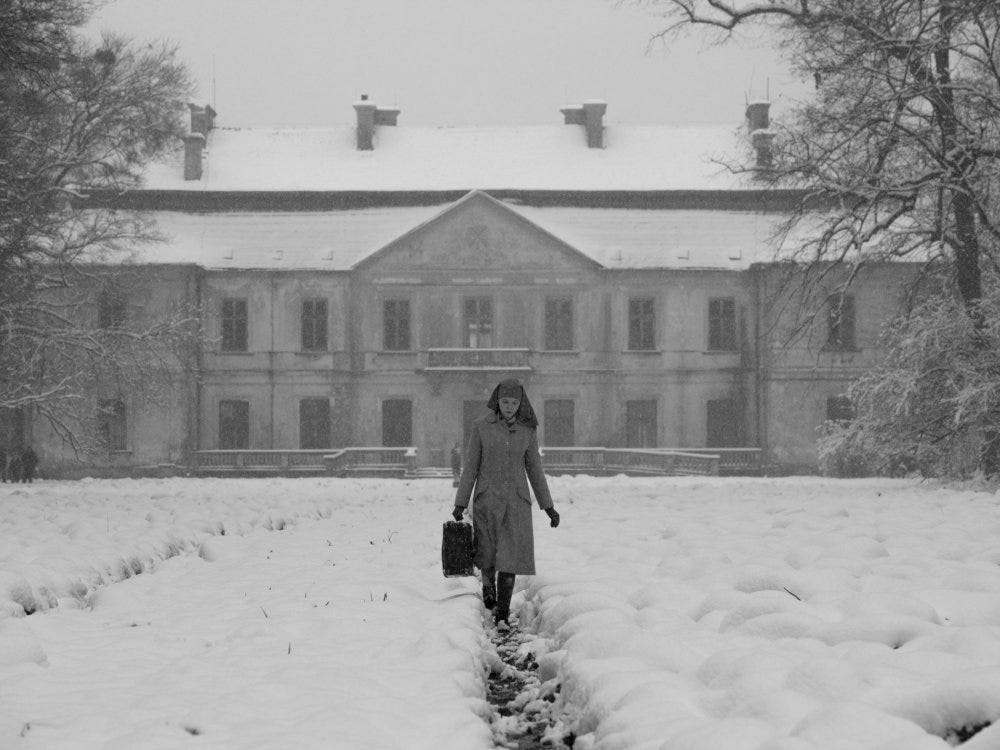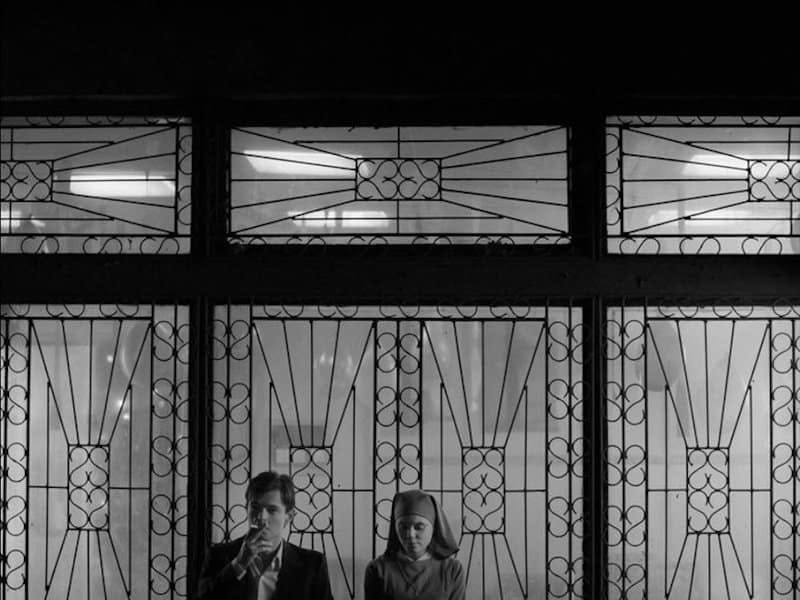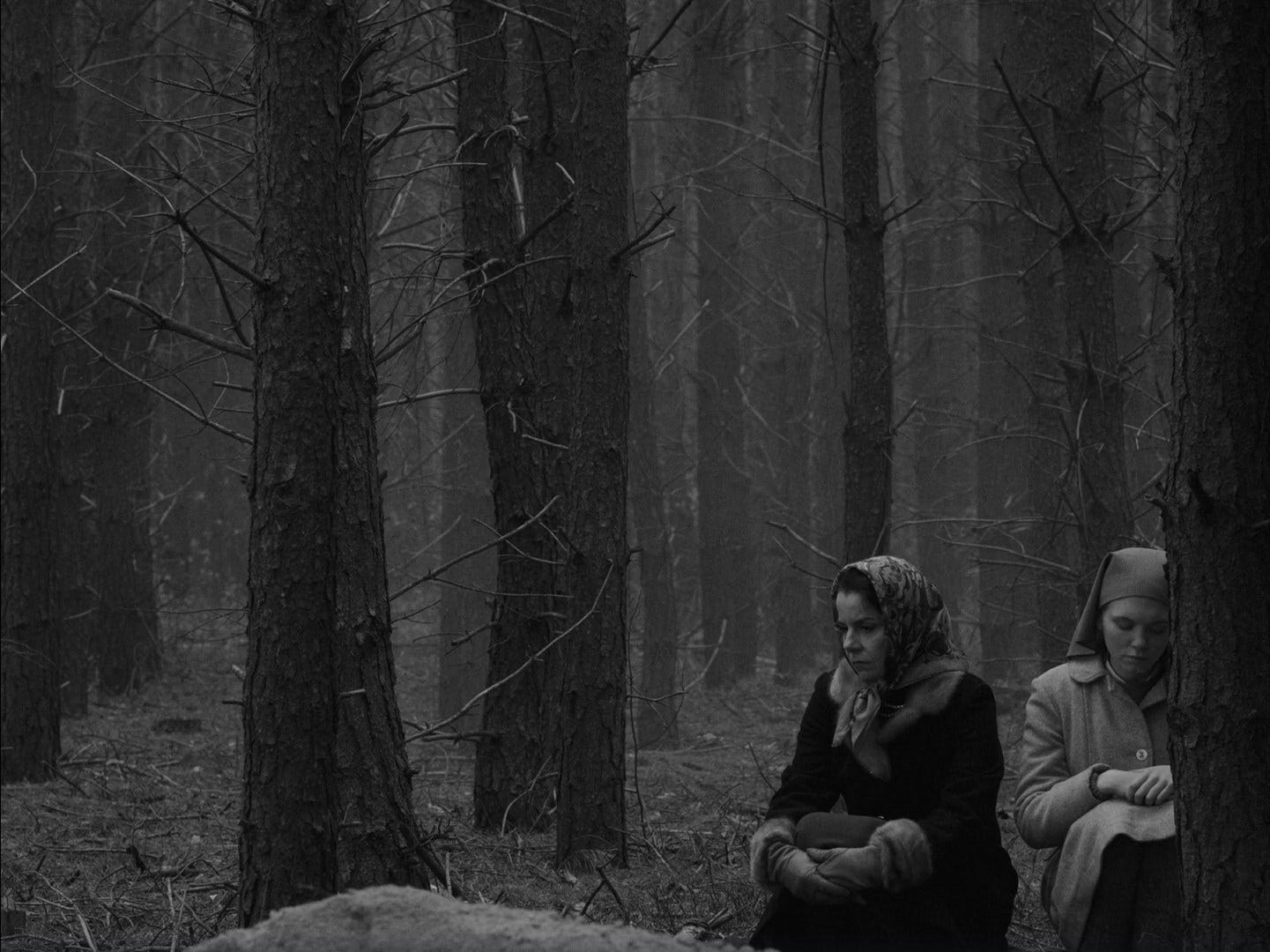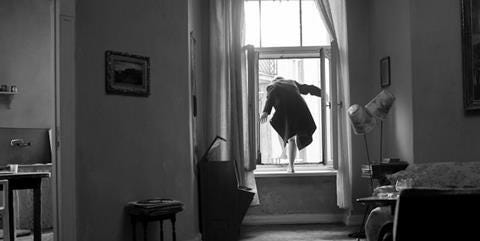Ida Is a Holocaust Movie That Isn’t Made for Christians
Genocide is not a source of inspiration.
Paweł Pawlikowski’s Ida (2013) is a film about Jewish trauma featuring a nun. It’s also perhaps the Holocaust film I’ve seen that caters least to Christian perspectives and Christian narratives. There is no salvation here.
The film is set in Poland in 1962. A young nun, Anna (Agata Trzebuchowska), is getting ready to take her vows when her prioress tells her she must first visit her aunt, who has till now refused to take her from the orphanage. When Anna arrives at the apartment, her mother’s sister, Wanda (Agata Kulesza) informs her bluntly that her name is Ida, and that she’s Jewish. Her parents were killed during the Holocaust.
Anna/Ida wants to visit her parents’ grave. Her aunt agrees to take her, and their quest to find the site of the burial takes up much of the rest of the film. They visit Ida’s family’s old home, which is now occupied by a farmer, Feliks Skiba (Adam Szyszkowski). Feliks protected Ida’s mother, her family, and Wanda’s small son during the Nazi occupation—supposedly. In fact, we learn that, under pressure from the Nazis, and/or to get the farm for himself, he murdered Ida’s mother and father and Wanda’s son and buried them in the woods. Ida was small and as a girl had no circumcision to give her away, so he took her to the local convent.
The movie is shot in stark black and white—Ida and Wanda are framed immaculately against sharp interior angles or exterior buildings, standing in front of dramatic windows or an isolated statue of Jesus. Human figures are pushed to the side and bottom of the frame; they are on the borders of a landscape which seems largely indifferent to their plight or their existence. If God is here, he’s looking at the landscape, or off into the corner—his eye rarely rests on people, be they nuns or Jews. In the most painful scene of the film, Wanda reaches down to pick up her dead son’s skull, which is off frame. You have to strain to see it, as if the world can’t even be bothered to hand Wanda her own grief.
The rigorous refusal of humanism is a deliberate contrast to the sentimental style and narrative of the most famous Hollywood Holocaust pictures. The decision to shoot in black and white in particular almost seems like a deliberate parody of Schindler’s List. There’s no red dress here to tell you which dead Jew to care about. Feliks himself is a small, bleak anti-Schindler, a man who had a chance to be righteous unto the nations, but like the vast majority of his countrymen, chose personal safety, avarice, and prejudice instead. Nor is he punished, as the bad guy’s inevitably are in more mainstream movies. He has to redig a grave and live with what he’s done.That’s the extent of justice.
Christians, of course, are supposed to prioritize forgiveness, and Ida herself is devout. At first she’s quietly but firmly put off by her aunt’s vices—drinking, sex, revenge. Wanda was a Communist judge and sentenced men to death for betraying socialism. She’s also aggressively irreverent in her nice’s direction, mocking the Bible and just about rolling her eyes when Feliks’ wife asks Ida to bless their baby. Wanda’s disreputable, coarse, and difficult, an antisocial bad mother as opposed to Ida’s saintly, quiet, tractable good daughter.
It's impossible to like Kulesza’s Wanda, though, not least because her bitterness is so obviously lived-in and hard-earned. How could a Polish Jew who made it through the Holocaust adopt an attitude of piety towards anything, least of all the Church? Ida, beneath her habit and behind her mild eyes, is clearly asking that question as well. When she tells Jesus she’s not ready to take her vows towards the end of the film, you have to wonder if he shouldn’t be asking her for forgiveness instead. His followers murdered her family, after all, and then indoctrinated her into the cult that killed them.
Most mainstream Hollywood films end with text on a black screen informing you exactly how many Jews the good gentile saved. It’s inspirational and uplifting; you can leave feeling good about being a Christian, secure in the knowledge that the Holocaust, at bottom, was a spiritual exercise in which gentiles were allowed to demonstrate their virtue.
At the end of Ida, though, no Jews survive. In a scene shot mostly from a single, still camera, Wanda wanders around her apartment, drinking and listening to music before striding to the open window and leaping out; her cigarette smoke continues to curl up in the ashtray in the empty room. For her part, Ida considers leaving the church and sleeps with Lis (Dawid Ogrodnik) an attractive saxophone player. He suggests they get married and raise kids, but instead she leaves him sleeping, puts on her habit, and returns to take her vows. Her Jewish identity, like her lover, is left behind her on the bed.
Ida’s decision isn’t presented as a tragedy—Pawlikowski’s film is too controlled, and too cold, for that kind of sweeping pronouncement. Her return to the church is more an acknowledgement, perhaps, that some choices, and some histories, can’t be undone. Ida knows now that a murderer put her in the church, and robbed her of her Jewishness along with her parents. But the Jewish identity is still gone. Perhaps if Wanda had been able to take her sooner, things would have been different. But Wanda too in many ways died in those woods with her child.
The thing about genocide is that it is an end. Christians may want the Holocaust to be an inspiration, a chronicle of salvation through suffering, since that assuages their guilt, and is a story that Christians like to tell. Ida, though, is about possibilities closed off, and a past that can’t be used or assimilated even when it’s dug up. You can’t join your family when there is no family. So many of the frames in Ida are empty because so many people are gone.






I’m glad you wrote this piece. When you wrote your previous essay on the myth of the rescuer I thought of Ida and wondered about your opinion.
I loved this movie. It impressed me for all the reasons you discussed here, but especially in the way the movie engaged it’s own culture and history. The priest was willing to keep the truth from her long after it was necessary for her safety. The aunt was a partisan, a hero in a lesser movie and also a Communist judge who sent who knows how many innocents by our standards to prison. How much did all that happened to her distort her as a person? The killer killed them in part to protect himself and his family from his own father’s attempts to help them. Fear, suffering, pain, hatred, bigotry but mostly fear corrupts and mutilates this ordinary person into a mass murderer and thief.
I remember the line from the mother in the movie Ordinary People about how lucky people are who were never tried by circumstances and never had to see what they are really like.